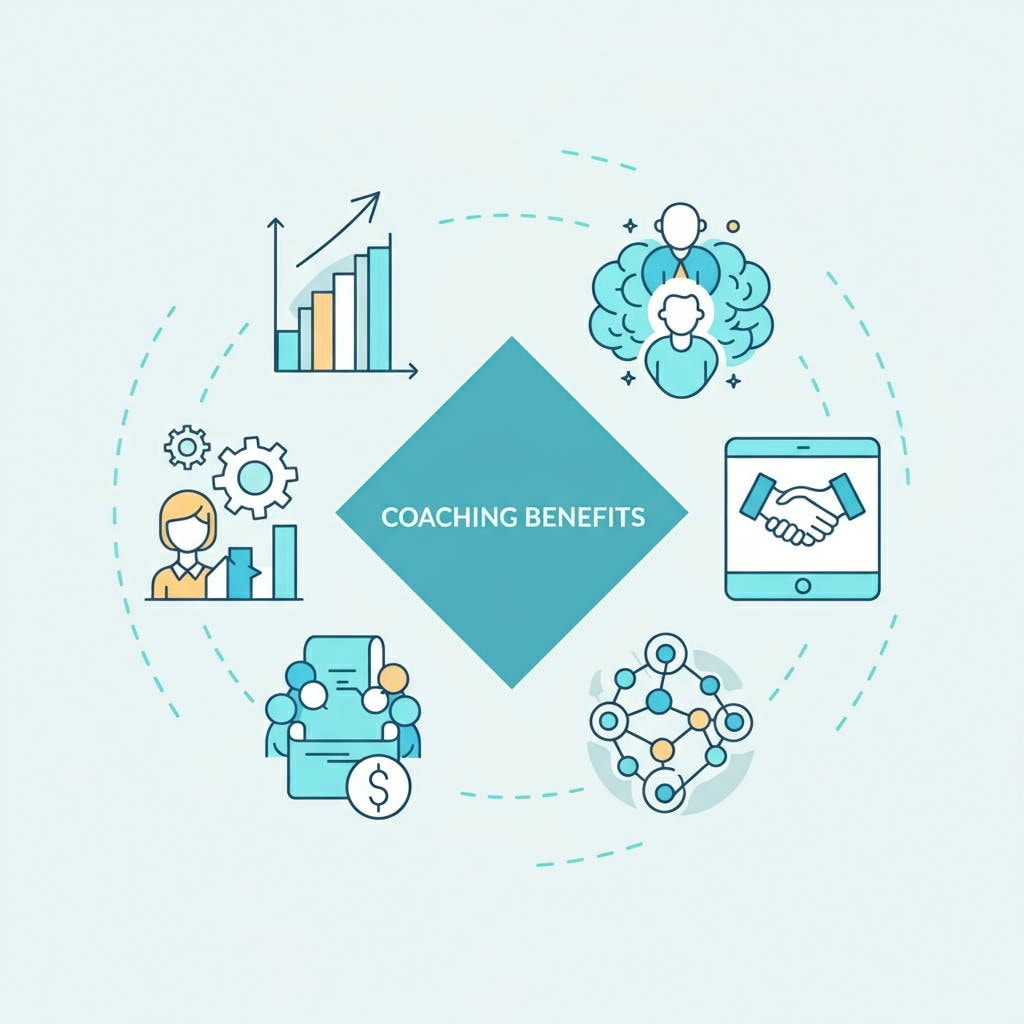Measuring the impact of coaching is crucial to understanding its role in driving both personal and organizational success. Coaching goes far beyond being a simple leadership tool; it improves productivity, nurtures self-awareness, and builds emotional intelligence. While tangible outcomes like increased performance and efficiency are easy to track, the true power of coaching often lies in its intangible effects, such as strengthened communication, better team cohesion, and profound individual growth. This dual impact underscores the need to evaluate coaching not just by what is measurable, but by the broader transformation it inspires.
This article takes an in-depth look at coaching’s influence, exploring both its tangible and intangible effects, approaches to evaluating its effectiveness, and the differences between short-term transactional outcomes and lasting transformational change.
Understanding Coaching Success
Successful coaching is more than meeting predefined goals; it helps align organizational goals with individual growth. Whether through executive coaching programs or broader leadership coaching initiatives, the focus remains on facilitating measurable outcomes and fostering a culture of continuous improvement. Experienced coaches work closely with clients to define specific objectives, ensuring the process aligns with organizational needs and the individual’s aspirations.
Organizations understand the significance of tracking improvements to analyze how coaching contributes to performance improvements, team performance, employee engagement, and long-term business results. By doing so, they create a clear roadmap for actionable insights.

The Intangible Benefits of Coaching
The non-tangible, or intangible, benefits of coaching are transformational, touching on areas that significantly enhance professional growth and team dynamics. These benefits include:
1. Positive Attitudinal Shifts
Effective coaching cultivates a positive mindset, improving job satisfaction, employee retention, and overall organizational culture. Attitude changes often drive team cohesion and elevate collaboration, key factors in creating a strong coaching culture.
2. Enhanced Self-Efficacy
A core outcome of coaching is instilling confidence in individuals to face challenges and achieve goals. High self-efficacy fuels resilience, adaptability, and decision-making capabilities, driving business outcomes.
3. Alignment of Identity and Values
Coaching helps individuals align their professional roles with personal values, fostering a deeper connection with their careers. This alignment promotes employee engagement and supports tailored professional growth.
4. Improved Behavioral Changes
Behavioral coaching delivers concrete evidence of progress, such as better problem-solving and leadership skills. These changes translate into enhanced individual and team performance.
5. Advanced Communication Skills
Coaching’s most impactful outcome is sharpening soft skills like clear communication. Improved interactions among key stakeholders, clients, and colleagues boost team performance and strengthen organizational cohesion.
6. Better Decision-Making Abilities
Coaching sessions refine organizational decision-making processes, equipping high-potential employees to make data-driven, confident choices that support business needs and strategic priorities.
7. Motivation and Commitment to Growth
By incorporating goal-setting techniques and focusing on continuous improvement, coaching motivates employees to strive for excellence, yielding both personal and business impact.
Measuring Coaching Effectiveness
Organizations must implement strategies for measuring coaching impact to demonstrate ROI and validate coaching’s contribution to organizational success. Although intangible benefits often involve qualitative data, there are structured methods that can capture both qualitative and quantitative insights:
-
Self-Reporting: Feedback provided by individuals receiving coaching services offers invaluable opinions expressed through their experience.
-
Observer Feedback: Evaluating input from external coaches, HR leaders, managers, and peers can highlight behavioral changes.
-
Metrics and Tools: Psychometric tests and employee engagement surveys can track improvements and soft skills development.
-
Behavioral Observation: Noticing tangible outcomes such as productivity metrics, stronger team cohesion, and better life sciences applications demonstrates the value coaching brings to a business.
Integrating these approaches ensures organizations thoroughly evaluate how coaching contributes to the financial impact and professional development of employees.
Evaluating Coaching Programs for Organizational Impact
By focusing on the larger picture, organizations can evaluate executive coaching programs and coaching initiatives to analyze their effect on organizational performance. Key considerations include:
-
Organizational Goals: Did coaching align with the company’s strategic priorities and goals?
-
Team Dynamics: Has coaching improved team performance and collaboration?
-
Coaching ROI: Measurable outcomes, such as monetary value gained versus investment made, help organizations understand the concrete impact.
-
Ongoing Engagement: Did coaching engagement lead to sustained progress for individuals and teams?
Assessing these factors reinforces coaching effectiveness and provides actionable insights for future coaching goals.
Transactional Versus Transformational Outcomes in Coaching
Understanding the difference between transactional and transformational outcomes is essential in measuring coaching success effectively:
-
Transactional Outcomes: These are immediate, observable improvements, such as enhanced productivity, specific metrics met, or improved performance during coaching sessions.
-
Transformational Outcomes: Transformational change involves profound, long-lasting shifts in mindset, behaviors, and self-awareness. It often results in significant behavioral changes contributing to continuous improvement and business outcomes.
While transactional outcomes offer value in the short term, transformational impacts are what make executive coaching a keystone in achieving lasting success.
Harnessing the Full Potential of Coaching
The actual value of coaching lies in its ability to create a meaningful coaching experience that addresses both tangible and intangible factors. By fostering measurable outcomes, leadership coaching supports organizational culture and empowers professionals to unlock their full potential. Whether working with internal or external coaches, organizations prioritizing executive coaching initiatives find that the investment pays dividends across employee retention, business results, and long-term success.
Through a continuous cycle of goal-setting, evaluation, and refinement, coaching delivers profound growth at every level, ensuring individuals and organizations thrive in their pursuit of excellence.



